Abstract
In June 1988, the New York State Hospital Review and Planning Council approved major revisions in the state hospital code (Part 405). Among the most controversial of these changes were the recommendations of the Bell Commission concerning limitations on resident work hours, new emergency service requirements, and enhancements in ancillary staffing. The ancillary staffing mandated by the new code regulations for teaching hospitals include the provision at all times of intravenous services, phlebotomy services, messenger services, transport services, nurses aides, housekeeping services, and other ancillary support in a manner sufficient to meet patient care needs and to prevent adverse impact on the delivery of medical and nursing care. The intent of the new health code requirements is to reduce or eliminate many of the nonphysician tasks performed by residents so as to effectively reduce their workload. We conducted a survey of Medicine residents at Queens Hospital Center to assess the amount of time they presently devote to nonphysician tasks, their perceptions of the need for ancillary staff to relieve them of the burden of these nonphysician tasks, and their evaluation of the effectiveness of a recently instituted intravenous therapy team.
Full text
PDF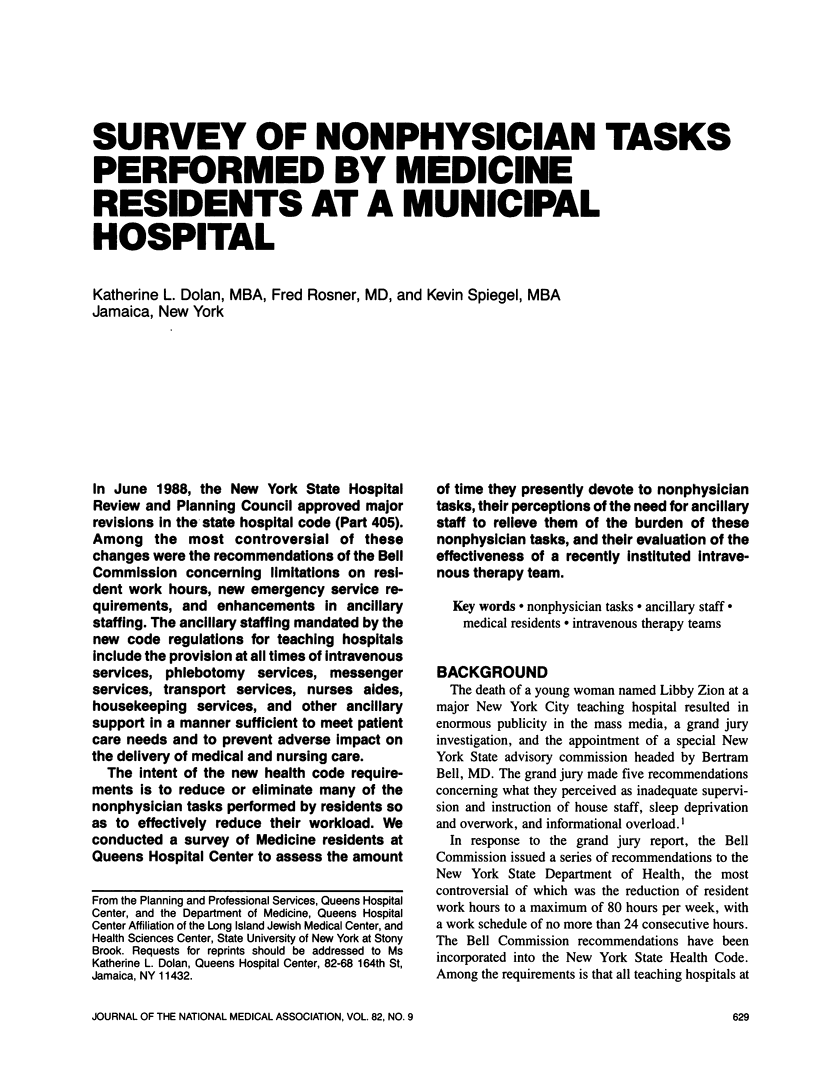
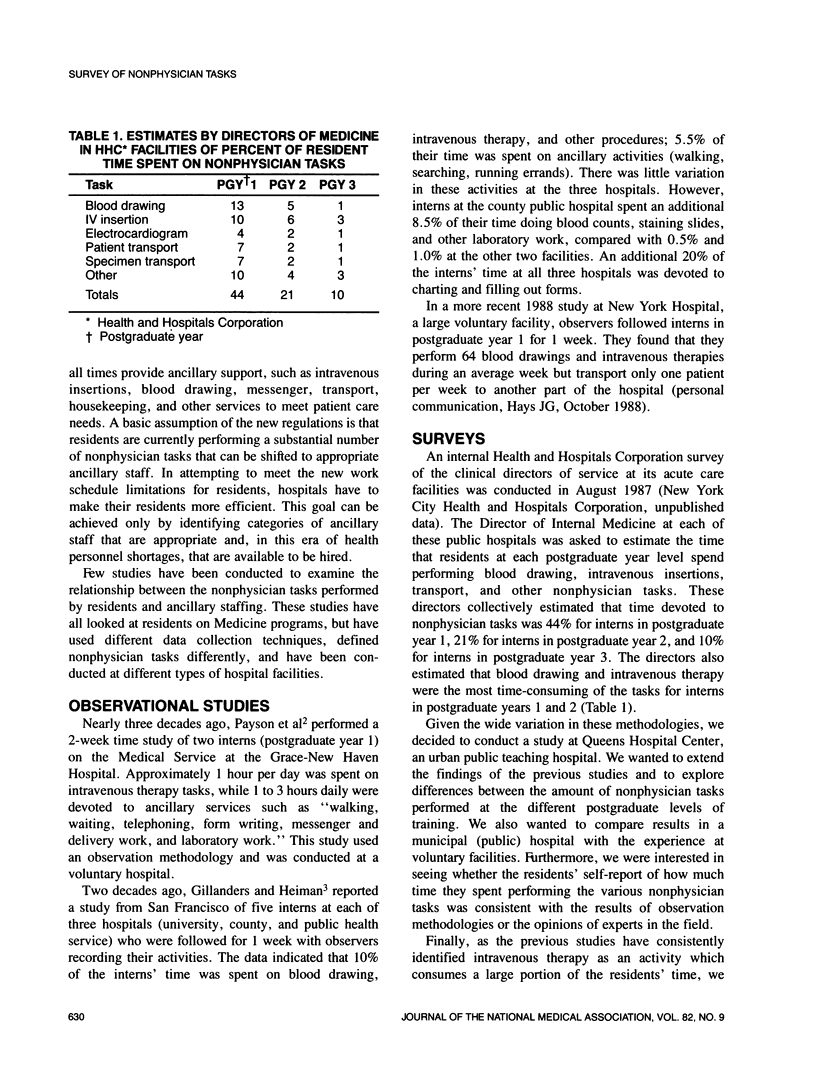
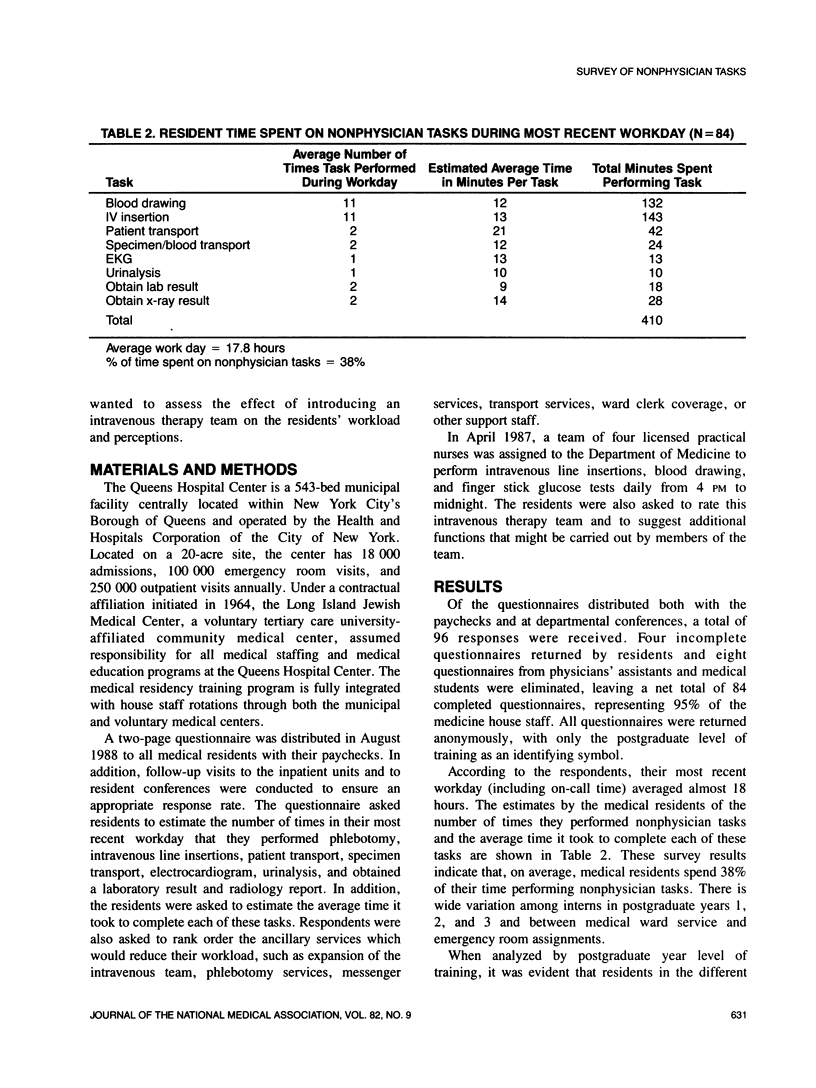
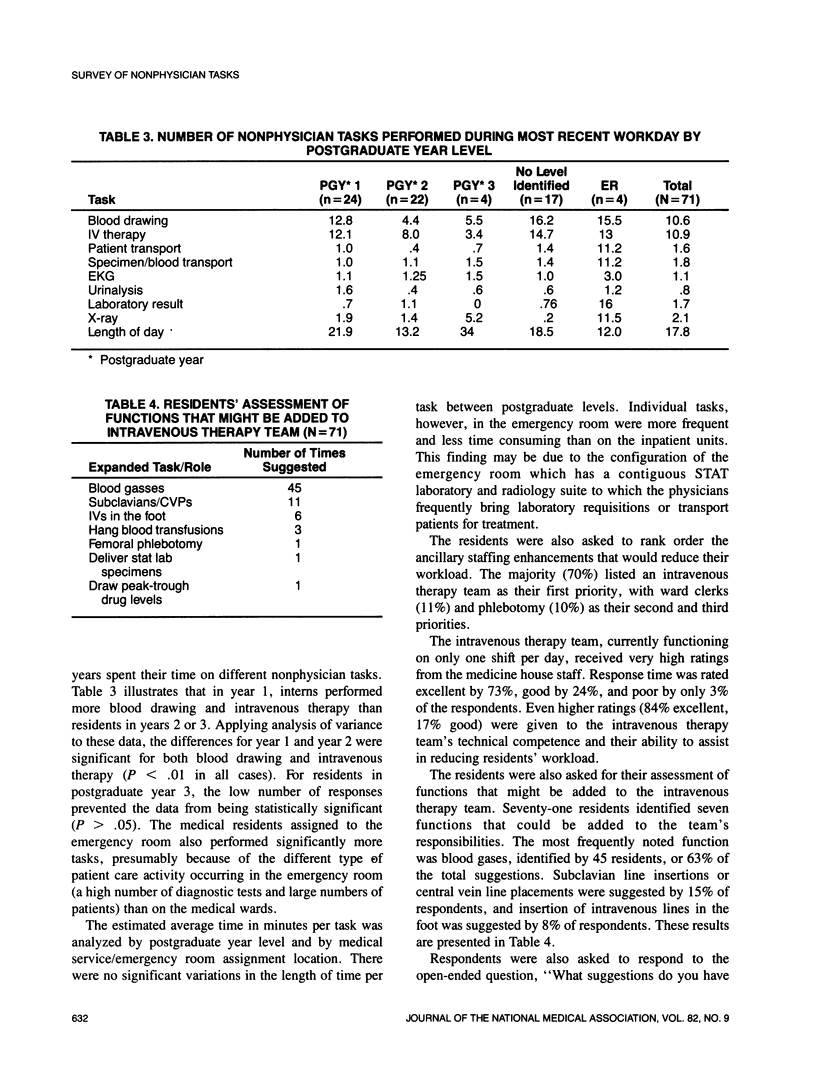
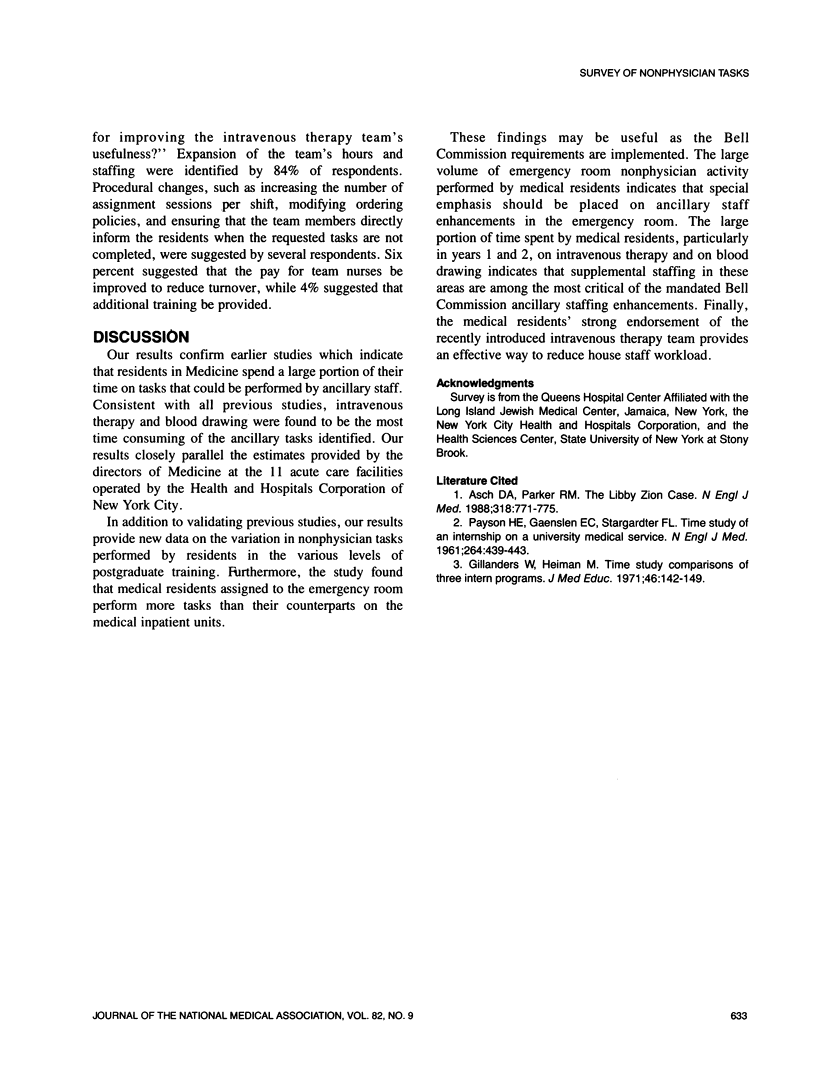
Selected References
These references are in PubMed. This may not be the complete list of references from this article.
- Asch D. A., Parker R. M. The Libby Zion case. One step forward or two steps backward? N Engl J Med. 1988 Mar 24;318(12):771–775. doi: 10.1056/NEJM198803243181209. [DOI] [PubMed] [Google Scholar]
- Gillanders W., Heiman M. Time study comparisons of 3 intern programs. J Med Educ. 1971 Feb;46(2):142–149. doi: 10.1097/00001888-197102000-00005. [DOI] [PubMed] [Google Scholar]
- PAYSON H. E., GAENSLEN E. C., Jr, STARGARDTER F. L. Time study of an internship on a university medical service. N Engl J Med. 1961 Mar 2;264:439–443. doi: 10.1056/NEJM196103022640906. [DOI] [PubMed] [Google Scholar]


